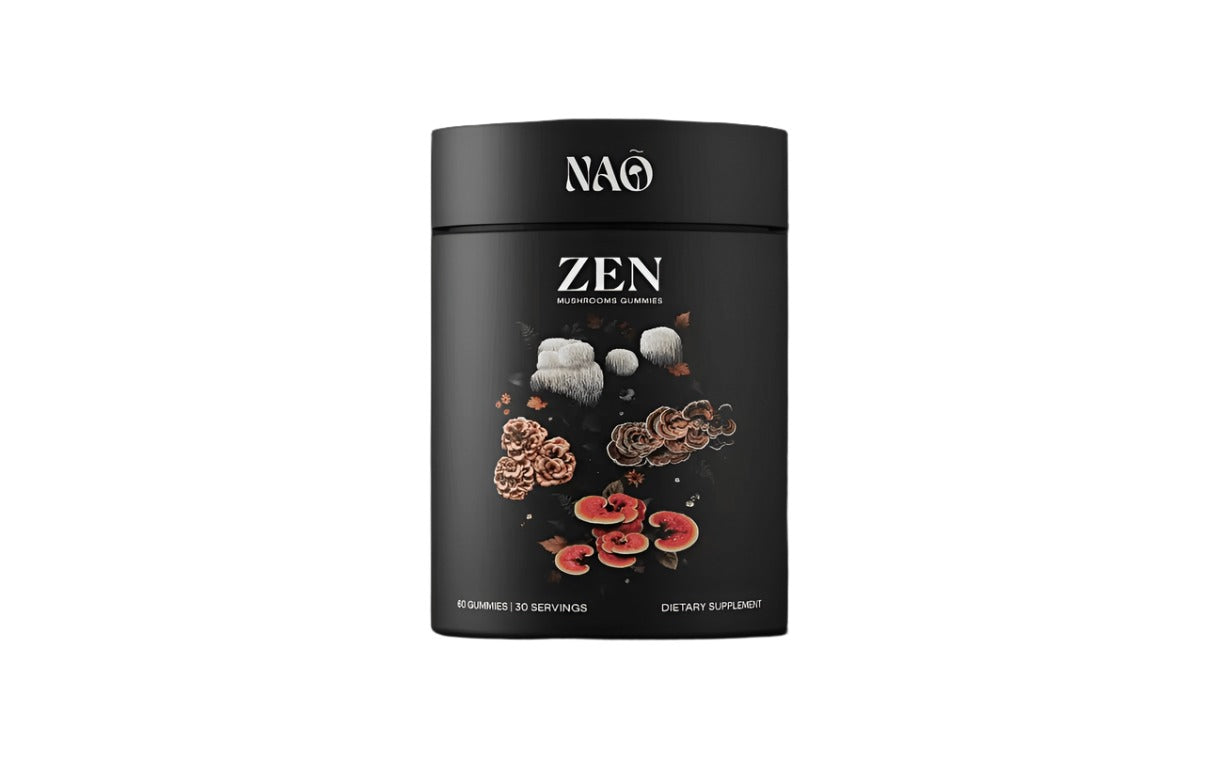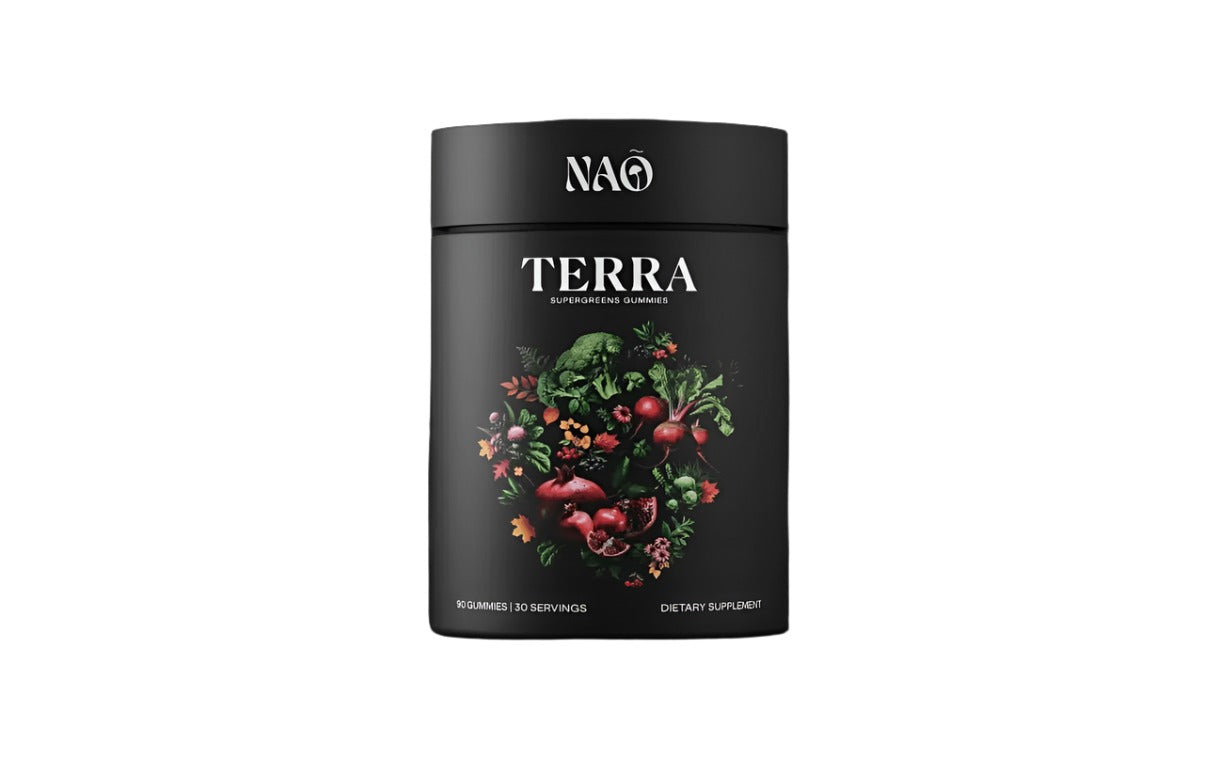Fasting has been taken to be one of the most popular strategies for improving health and optimizing function within the human body. You may, however, naturally wonder about the role of supplements in all this process. So, do supplements break a fast? Do they impair its benefits? Knowing how various supplements impact your fasting is critical in maintaining effectiveness in your fasting regimen.
In this article, we will explore which supplements are friendly with fasting, how to fit them into any given fasting schedule, and give you some tips for making informed choices to support your goals. Just ahead, we'll sort fact from fiction on the topic of supplements and fasting and get you on the road to smart supplement use while effectively fasting.
What Is Fasting?
Fasting can be defined as the act of refraining from food and sometimes even liquid intake for a certain period. Recently, due to its possible health benefits with regard to weight reduction, improvement in metabolic health, and mental clarity, it has reached huge popularity. Many people fast for reasons that range from religious observances to personal health goals.

Fasting is usually cycles of both eating and fasting. One such common method for fasting is intermittent fasting, which allows one to eat within a given duration each day and then fasts during other hours. An example might be the 16/8 method, meaning one fasts for 16 hours and eats within an 8-hour window.
Duration and frequency of the fasts differ vastly depending on personal preference and desired outcomes. It doesn't matter if it is daily, weekly, or longer – the idea is basically the same: giving the body sufficient time without food to attain specific physiological changes. This would include improved insulin sensitivity, increased fat oxidation, and cell repair processes.
Knowing the basic principles of fasting gives insight into how a person can use supplements to enhance and complement their fasts. How supplements interact with your fast, and what you must pay attention to in order to ensure an effective fast.
Types of Fasting
There are many methods of fasting, each with a different protocol and, in turn, different benefits. Knowing the types of fasts can help you decide how to take your supplements without negatively interfering with your fasting results.
Intermittent Fasting
There are a lot of benefits of intermittent fasting. It is a very popular method that alternates time periods of eating and fasting. One common form is the 16/8 technique, where a person fasts for 16 hours and limits his intake of food to an 8-hour time frame. The 5:2 method is another variant that allows someone to eat normally for five days in the week and limits the consumption of calories to approximately 500-600 on the remaining two non-consecutive days. Interminent fasting is a very simple method with potential benefits in improved metabolic health and weight management.
Alternate-Day Fasting
It's when one day is against another in terms of eating normally versus very low calorie intake. It restricts calorie intake to about 500-600 calories on fasting days. This method has shown effects on weight loss and improvements in metabolic markers, although it might be a little bit more demanding to stick with in the long run when compared to other methods of fasting.
Extended Fasting
Fasting for periods longer than 24 hours, typically up to 72 hours or more. This type of fasting is less common and often used for attainment of certain health benefits or detoxification. Prolonged fasting is likely to create more extreme changes in metabolism, including increased autophagy – cellular repair processes – and deeper fat loss. It requires careful monitoring for its safety and effectiveness.
Different types of fasting have different effects on metabolism, energy, and general health. These differences are important to consider when assessing how supplements might interact with your fasting regime. In the next sections, we look at how some supplements interact with these methods and give tips on how to maintain your fasting goals while supplementing for health.
Supplements and Their Impact on Fasting
One, however, has to be complex in venturing into the world of supplements while fasting because not all of them are created equal with regard to their interactions within your fasting routine. You want to understand the interaction of supplements and fasting so that your supplementation doesn't break your fast or impede the very benefits you are reaching out to achieve.

We will discuss in this section how the different supplements might affect fasting, which ones are considered fasting-friendly, and which may interfere with your fasting goals. Knowing about these interactions will enable you to make informed decisions on how to optimize your fasting for better health and wellness.
Caloric Supplements
Caloric supplements do contain some calories and can break a fast. These include supplements that come with added sugar, fat, or protein. To this respect, whey protein and some meal replacement shakes are very heavy in calories and may easily elicit an insulin response and consequently break a fast.
One of the common targets when someone is fasting is to remain in ketosis or autophagy, which gets disrupted by caloric intake. Caloric supplementation might kick you out of these desirable physiological states and might impair the potency of your fast.
You should be very careful while choosing supplements because a lot of them contain hidden calories. Here are some examples of caloric supplements:
- Whey protein: This will have around 100-150 calories per serving.
- Coconut oil: This will have around 120 calories per tablespoon.
- Meal replacement shakes: Can contain 200-400 calories per serving.
- Collagen gummies: Generally contain 30-60 calories per serving.
- BCAA powders with caloric sweeteners: Can contain 10-30 calories per serving.
There's an important caveat to consider here: Even small amounts of calories might be enough to break a fast. For example, just one teaspoon of MCT oil is about 45 calories, which could conceivably raise insulin levels and break a fast in many people.
Non-Caloric Supplements
On the contrary, non-caloric supplements are unlikely to break fast. This would include water soluble vitamins, minerals, and some amino acids that do not contain any calories. For instance, electrolytes like sodium, potassium, and magnesium are important in staying hydrated and keeping the body functioning while on a fast.
Such non-caloric supplements can be taken to support your fast and help ensure that you do not have a nutrient deficiency. They are also applied to enhance energy when it becomes challenging during the fasting period. Here are some examples of non-caloric supplements:
- Multivitamins: essential vitamins and minerals are provided with no addition of calories.
- Sugar-free electrolyte powders: it helps the body to balance the electrolytes when one is fasting.
- Omega-3 capsules: although they have calories, the amount is usually very small and can be considered negligible.
- Probiotics: they help in the gut but do not add any calories into the body.
- Caffeine supplements: they may help the body to remain alert and focused during a fast.
But it's important to note that some non-caloric supplements may still have the potential to raise insulin due to their ingredients. For example:
- Artificial sweeteners: While calorie-free, certain research claims they affect insulin levels.
- Amino acids: Certain amino acids, when isolated, have the effect of stimulating insulin production.
- Supplements with additives: In some supplements, the additives or fillers raise trace calories.
In such a case, consulting a professional in the subject may be necessary to consume the right supplement during your fast. A health professional can then advise you accordingly, given your health goals, type of fast, and individual nutritional needs.
What is more, there is a big individual variability in responses to supplements. What will break a fast for one person may not break it for another. One can identify personal responses to various supplements during a fast by monitoring blood glucose and ketone levels.
Common Supplements and Their Effects on Fasting
Many people, when they get into fasting, wonder what will break their fast and what won't. The thing is, supplements are not created equal when considering a fast. Some of them will ruin your fast; some might help and even support the goals you have for fasting without ruining the metabolic benefits.

Remember that supplements can affect individuals differently. Also, different types of fasting may have variable tolerance to certain supplements. Always consult a professional in the medical field before taking new supplements while fasting.
Multivitamins
Multivitamins are among the most popular supplements, providing a wide range of essential nutrients. Most multivitamins come calorie-free and won't break your fast. Some multivitamins may, however, contain fillers, sugar, or other additives that could have some very minor caloric content.
When choosing multivitamins to take on your fast days, avoid those that have added sugar or fillers. The gelatin capsule and liquid vitamin forms are usually preferred because they'll more likely contain fewer of these types of additives. Multivitamins are generally considered safe to take with water and can help top off your daily requirements.
Key points for multivitamins while fasting
- Avoid any with added sugar listed or a caloric sweetener on the label.
- Avoid starches by opting for cellulose or vegetable capsules.
- Be very careful about gummy vitamins. Many of these little vitamins are made with sugar-based calories or sugar alcohols.
- Take fat soluble vitamins A, D, E and K with food, during the window.
Releasing versions of some supplements are not ideal for fasting conditions since they require co-administration with food: time-release and extended release.
While multivitamins are normally very safe to take during a fast, one needs to be aware that certain vitamins might make you nauseous if taken on an empty stomach. If you find yourself feeling unwell from taking your multivitamin fasting, then consider taking it during your eating window.
Electrolytes
Electrolytes are essential in maintaining fluid balance and proper muscle function. Among some of the common electrolytes are sodium, potassium, and magnesium. Each of these minerals contains no calories and is, therefore, safe for consumption during a fast.
This becomes more so important during times of fasting, particularly in situations involving longer and more intense fasting periods. They prevent cases of dehydration and muscle cramping, thus ensuring you remain healthy and comfortable throughout the fasting period. Electrolyte supplements are available in tablet or powder form and are dissolved in water.
Benefits of electrolyte supplementation during fasting
- Maintains proper hydration: It helps your body maintain water better.
- Prevents muscle cramps: especially important if you are training while fasted.
- Supports brain function: Electrolyte balance is critical for proper activity in the brain.
- Helps manage headaches: a common and often debilitating side effect from fasting.
- Help your kidneys: Proper electrolyte balance is important to prevent overworking of your kidneys.
Aim for an electrolyte supplement with no added sugar or artificial sweeteners. Here are some popular options:
- Plain salt (sodium chloride)
- “No Salt” (potassium chloride)
- Magnesium citrate or glycinate supplements
- Sugar-free fasting electrolyte powders
Note, however, that while the electrolytes are generally safe, an overconsumption can result in overload. Always observe recommended dosages, and consult with a healthcare professional in case of doubt about your electrolyte needs.
Protein Powders
Protein powders are used for muscle growth and recovery. Most protein powders are not zero-calorie, so they will break fast. Whey, casein, and plant-based protein powders do pack a substantial number of calories.
However, if you need to take some amount of protein during a fast, the best option is to plan your protein supplement around your eating window so that you can reap the benefits of the protein while not breaking a fast. In the case of more extreme fasting protocols, it is best to avoid protein powders at all costs during fasting.
Key points about protein powder and fasting
- Caloric content: Most protein powders hold 100-150 calories per serving, which will break a fast.
- Insulin response: Protein consumption will stimulate insulin secretion (it is a trigger for an insulin response) and eliminate the metabolic advantage of fasting.
- Whey protein: Fast absorption branched chain; however this breaks a fast.
- Casein protein: Slower absorption, still with calories.
- Plant-based proteins: Some popular plant-based types include pea, rice, and hemp. They have calories and they will break fast.
- Collagen peptides: These have fewer calories but still are significant enough to vitamins break a fast.
Those who want to preserve muscle mass while fasting consider the following alternatives:
- Use your eating window to time your protein intake.
- Focus on resistance training and time it using your eating window when your muscles can maximize protein synthesis.
- Ensure taking enough protein during eating periods to help in muscle maintenance.
- Consider periods of fasting protocols that allow some protein intake, such as the FMD – Fast Mimicking Diet – under professional guidance.
Keep in mind that the concept of fasting is to rest the whole digestive system and allow the body to transition into those different metabolic states that are so beneficial for health. Introducing protein at this time can often cancel many of those benefits. Always consult with a healthcare professional or a registered dietitian on the best approach toward your particular goals for health and fasting.
Best Practices for Taking Supplements While Fasting
When supplementing during your fast, you want to be sure best practices are being followed in maximizing their benefits without disrupting your fasting goals. The right approach will be able to help attain your health goals while maintaining the effectiveness of your fast.

Here, we will outline the most important strategies for taking supplements while fasting, from timing to the types of supplements that are generally safe to take, and how to incorporate these into your fast seamlessly. Done right, these best practices will help support your health and really amplify the efficacy of your fasting regime.
Timing Your Supplements
Timing your supplement intake correctly does matter when trying to create and hold the integrity of a fasting regimen. In general, if you take supplements with your food during one of your eating windows, this minimizes as much as possible any potential influence on a fast. Aligning supplement intake with your meals ensures that the caloric intake or other associated insulin responses occur while you are already eating, generally reducing the potential for breaking a fast.
Now, for those that are non-caloric, one can take them during the fast – most complex vitaminsand minerals. Sometimes this may complicate the fast, though, if you're sensitive to minor disruptions. Very often, the simplest and most effective way to benefit from both your supplements and your fast is to coordinate supplement intake with your meals. This will keep you in a fasted state while ensuring that all the supplements are absorbed and utilized.
Choosing the Right Supplements
Choosing the right supplements at WellNao will help you ensure they are supporting your health goals without ruining your fast. First, choose supplements that don't have sugar additions or other general additives, like fillers, which can break your fast. Another major point here would be to opt for high-quality, reputable brands that will disclose this information for you.
One can also seek consultation with a health professional to get further guidance on which supplements will best suit their specific fasting protocol and health needs. They will help you sort through what supplements are most appropriate in light of your regimen of fasting and overall health goals. You can support your nutritional intake, hence your regime of fasting, very effectively if you make informed choices and follow expert advice.













